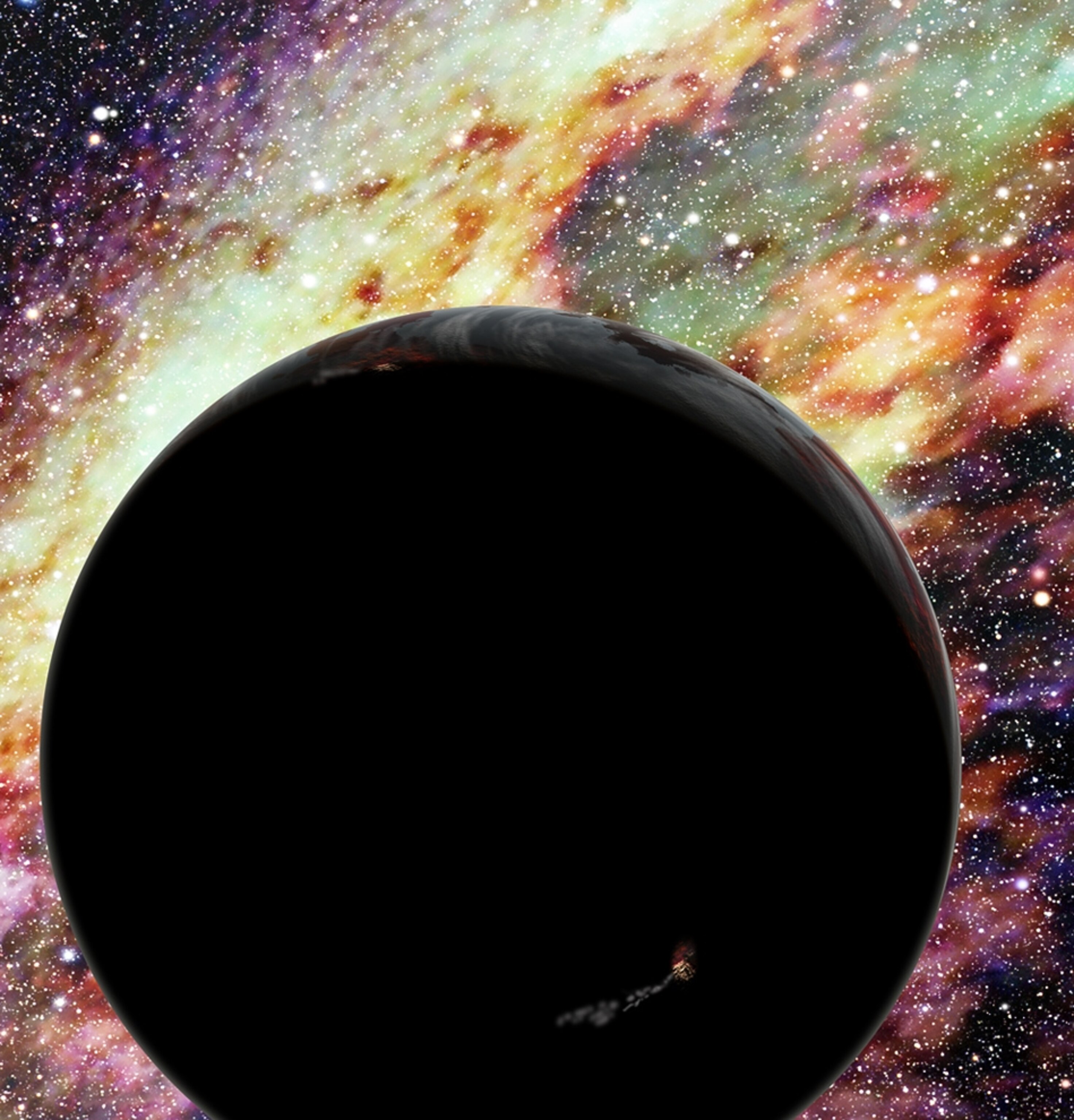
Hyperspeed Planets Are Hurtling Out of the Milky Way?
Runaway worlds may move at up to 30 million miles an hour, study predicts.
If you think life on Earth moves too fast, imagine being perched on a planet that's hurtling through space 400 times faster than our home world.
According to a new study, astronomers predict that "hypervelocity planets" are streaking through our Milky Way galaxy at up to 30 million miles (48 million kilometers) an hour—flung from the center of our galaxy by so-called gravitational slingshots.
Only subatomic particles such as cosmic rays are known to reach higher speeds in the Milky Way. (Related: "Lightning Creates Particle Accelerators Above Earth.")
So what would it be like on a lonely, fast-moving world? For one thing, the night sky would be a lot more dynamic, said study co-author Idan Ginsburg, an astronomy graduate student at Dartmouth College.
"If you were on the planet, from your perspective, you'd be moving so fast that in a relatively short time you'd see the galaxy just getting farther and farther away."
Ultimately, Ginsburg said, the planet would probably get kicked out of the galaxy.
"To where? That's a good question, but it would be a one-way ticket and a wild ride," he said.
"The problem is that you don't have a star or an external heat source, so your planet would get pretty cold." (Related: "Earth-Size 'Lone Wolf' Planets May Host Life.")
Planets Flung by Black Hole Slingshot
The new study was inspired by the discovery seven years ago of the first hypervelocity star, which is currently on a one-way trip out of our galaxy at a staggering 1.5 million miles (2.4 million kilometers) an hour.
Since then astronomers have spotted more than a dozen high-speed stars in the Milky Way.
Scientists believe such speedy stars originate in binary star systems, where pairs of stars orbit each other.
"When two stars orbiting each other get close enough to the massive black hole in the center of our galaxy, they feel slightly different forces, because they are at slightly different distances," explained study co-author Avi Loeb of the Harvard-Smithsonian Center for Astrophysics (CfA).
"Because of this difference, the gravity of the black hole is strong enough to basically rip them apart," and one star in the pair gets launched outward at high speed.
(Related: "Black Hole in Milky Way Seen Snacking on Asteroids?")
For the new study, astronomers examined what might happen to any planets orbiting within such system.
According to their computer models, the star that gets shot into space can carry its orbiting planets along for the ride.
The other star loses energy and falls back into orbit around the black hole. But in the process, that star's planets get torn away and hurled outward, also at truly extreme speeds.
Most hypervelocity worlds probably move at 7 to 10 million miles (11 to 16 million kilometers) an hour, the authors predict. But occiasionally in the model, hyperspeed planets traveled three to four times faster, though it's not exacty clear why.
Spotting the First Hyperspeed Planet
For now, any lone hypervelocity planets would be too distant, dim, and fast to be seen with today's astronomical equipment.
(Also see "'Nomad' Planets More Common Than Thought, May Orbit Black Holes.")
But the study authors think it may soon be possible to detect planets orbiting hypervelocity stars. The key is to look for transits—slight dips in starlight caused when a planet passes in front of its host star, as seen from Earth.
Finding actual planets headed out of our galaxy could ultimately shed light on conditions near the galactic center, which is largely hidden from us by distance and dust.
"We don't know if there are planets near the center of the Milky Way, where the stars are tightly packed and there are processes that might not allow planets to form in the first place, or might destroy them," the CfA's Loeb said.
The odds of life are only a bit better on planets orbiting hypervelocity stars—in order for any worlds to remain in orbit around high-speed stars, the planets would have to orbit quite closely.
"The [hypervelocity] stars we can detect are massive, and a planet so close to such a massive star would have to have life that could stand extreme temperatures. We don't know of any life that can do that," Dartmouth's Ginsburg said.
"But there may be less massive hypervelocity stars. Who knows? Maybe there could be life there. The universe is full of surprises."
The hypervelocity-planets study will be published in an upcoming issue of the Monthly Notices of the Royal Astronomical Society.